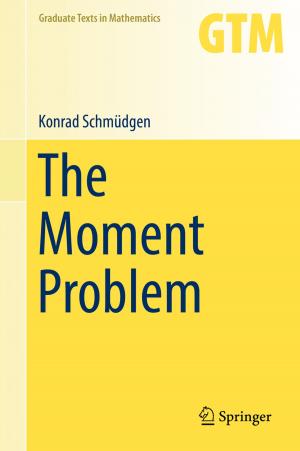Rethinking Infrastructure Design for Multi-Use Water Services
Nonfiction, Social & Cultural Studies, Political Science, Politics, City Planning & Urban Development, Science & Nature, Science, Biological Sciences, Environmental Science, Nature| Author: | Čedo Maksimović, Mathew Kurian, Reza Ardakanian | ISBN: | 9783319062754 |
| Publisher: | Springer International Publishing | Publication: | August 27, 2014 |
| Imprint: | Springer | Language: | English |
| Author: | Čedo Maksimović, Mathew Kurian, Reza Ardakanian |
| ISBN: | 9783319062754 |
| Publisher: | Springer International Publishing |
| Publication: | August 27, 2014 |
| Imprint: | Springer |
| Language: | English |
As we approach a historic tipping point in the global trend toward urbanisation – within two decades urban dwellers will increase from 49% to 60% of the planet’s population – this book identifies and addresses a critical problem: water. The editors show how cities can shift from being water consumers to resource managers, applying urban water management principles to ensure access to water and sanitation infrastructure and services; manage rainwater, wastewater, storm water drainage, and runoff pollution; control waterborne diseases and epidemics; and reduce the risk of such water-related hazards as floods, droughts and landslides.
The book explores the Multiple-Use Water Services (MUS) paradigm, offering a section on the MUS approach and a means of calculating the value of MUS systems, as well as tools and resources to support decision-making. Case studies illustrate MUS in selected urban and rural contexts. Each case study breaks out the challenges, policy framework, benefits, benchmarks, lessons learned (success and failures) and potential next steps.
The contributors consider the main options for applying the Multiple-Use Water Services (MUS) paradigm, breaking down its components and offering cost-benefit analyses along with challenges and considerations for both the short and long term. Also discussed are methods by which mutual interactions of water infrastructure and vegetated areas are taken into account in the synergy of spatial planning and optimised modelling of ecosystems’ performance indicators. This method of planning should make future developments cheaper to build; their users will pay lower utility bills for water, energy and heating. These developments will be more pleasant to live in and property value would likely be higher.
The brief includes a section on the MUS approach and a means to calculate the value of MUS systems, as well as provides tools and resources to support decision-making. Case studies are included to illustrate MUS in selected urban and rural contexts. Each case study breaks out the challenges, policy framework, benefits, benchmarks, lessons learned (success and failures) and potential next steps.
As we approach a historic tipping point in the global trend toward urbanisation – within two decades urban dwellers will increase from 49% to 60% of the planet’s population – this book identifies and addresses a critical problem: water. The editors show how cities can shift from being water consumers to resource managers, applying urban water management principles to ensure access to water and sanitation infrastructure and services; manage rainwater, wastewater, storm water drainage, and runoff pollution; control waterborne diseases and epidemics; and reduce the risk of such water-related hazards as floods, droughts and landslides.
The book explores the Multiple-Use Water Services (MUS) paradigm, offering a section on the MUS approach and a means of calculating the value of MUS systems, as well as tools and resources to support decision-making. Case studies illustrate MUS in selected urban and rural contexts. Each case study breaks out the challenges, policy framework, benefits, benchmarks, lessons learned (success and failures) and potential next steps.
The contributors consider the main options for applying the Multiple-Use Water Services (MUS) paradigm, breaking down its components and offering cost-benefit analyses along with challenges and considerations for both the short and long term. Also discussed are methods by which mutual interactions of water infrastructure and vegetated areas are taken into account in the synergy of spatial planning and optimised modelling of ecosystems’ performance indicators. This method of planning should make future developments cheaper to build; their users will pay lower utility bills for water, energy and heating. These developments will be more pleasant to live in and property value would likely be higher.
The brief includes a section on the MUS approach and a means to calculate the value of MUS systems, as well as provides tools and resources to support decision-making. Case studies are included to illustrate MUS in selected urban and rural contexts. Each case study breaks out the challenges, policy framework, benefits, benchmarks, lessons learned (success and failures) and potential next steps.















